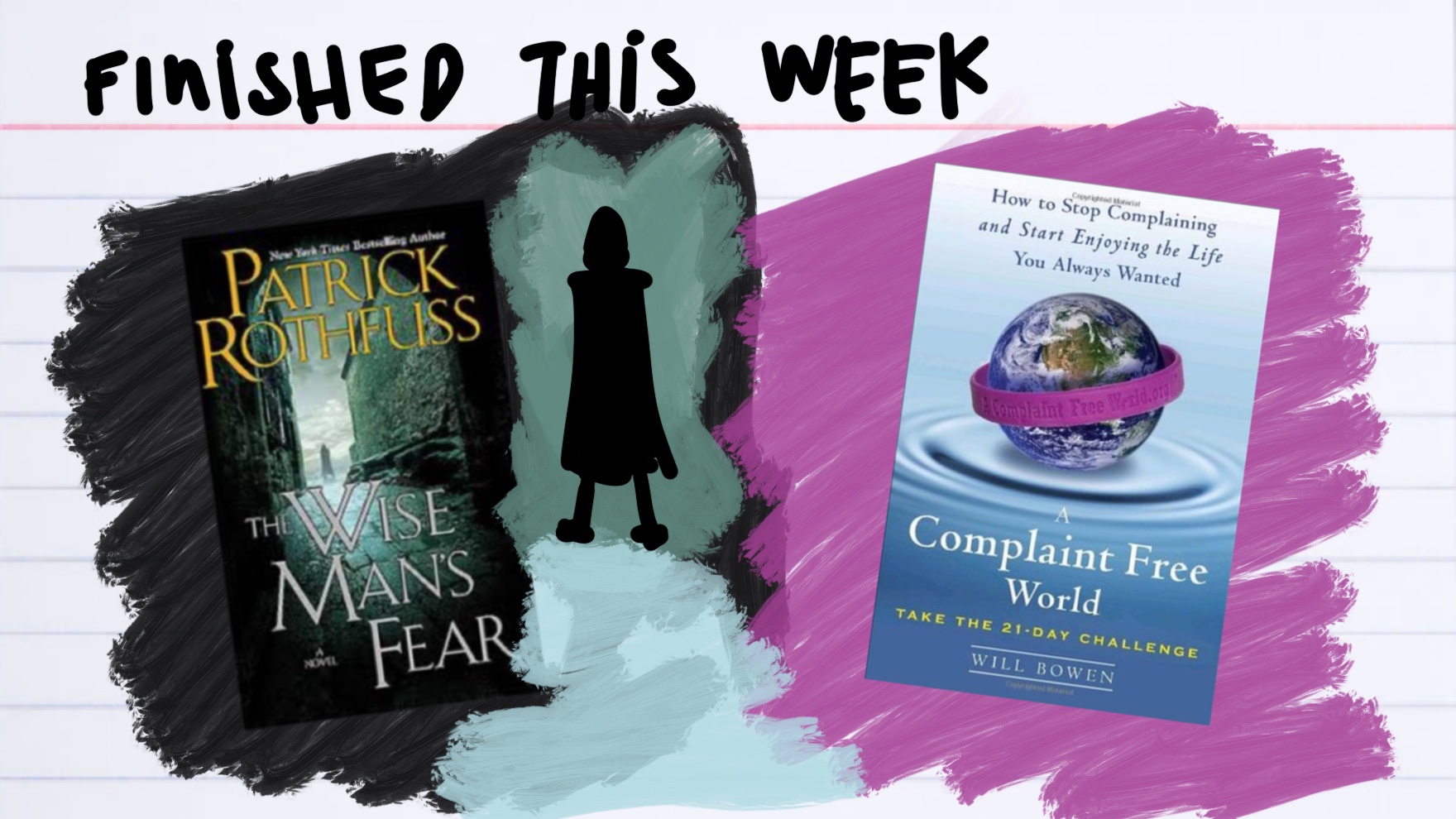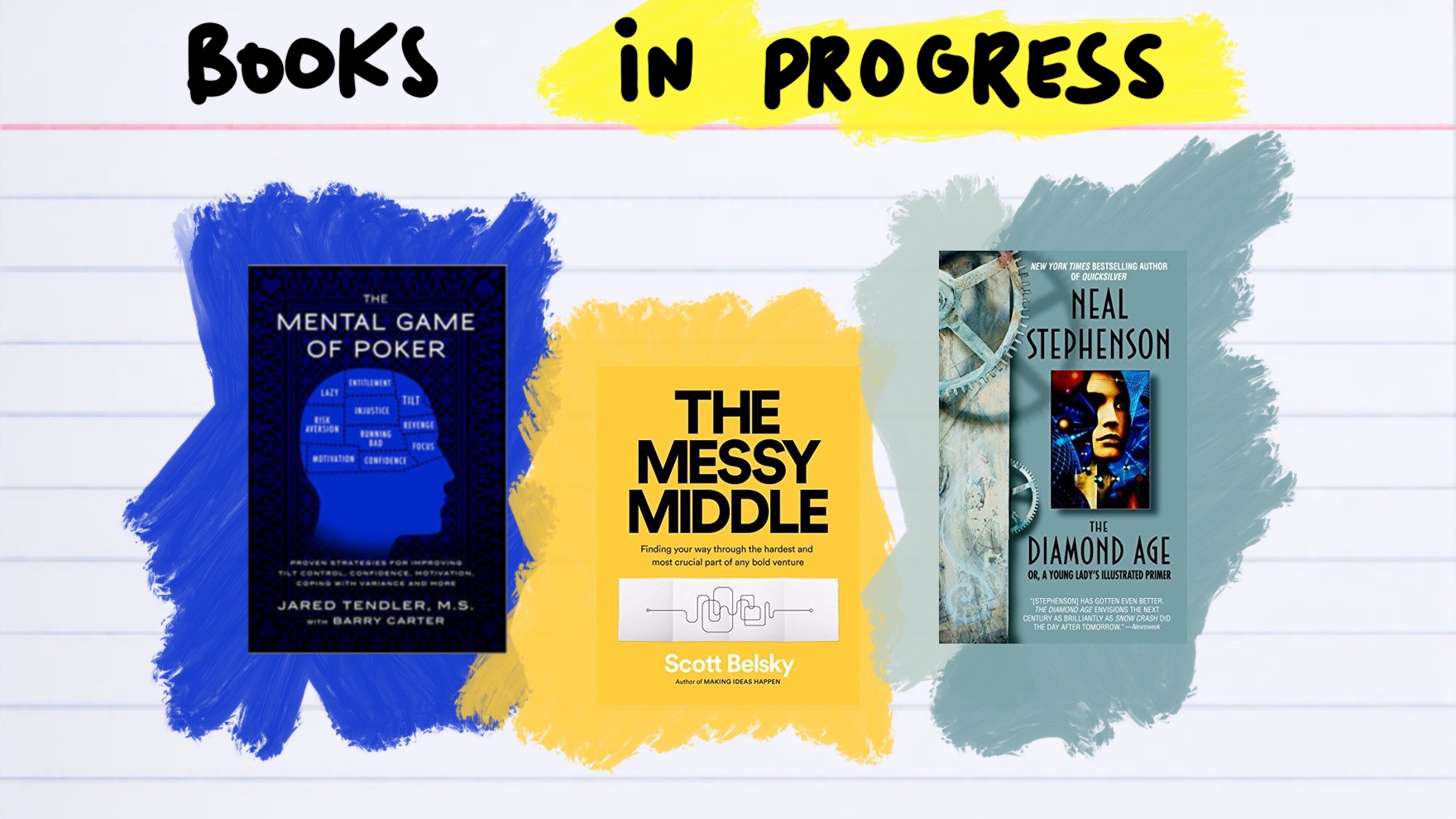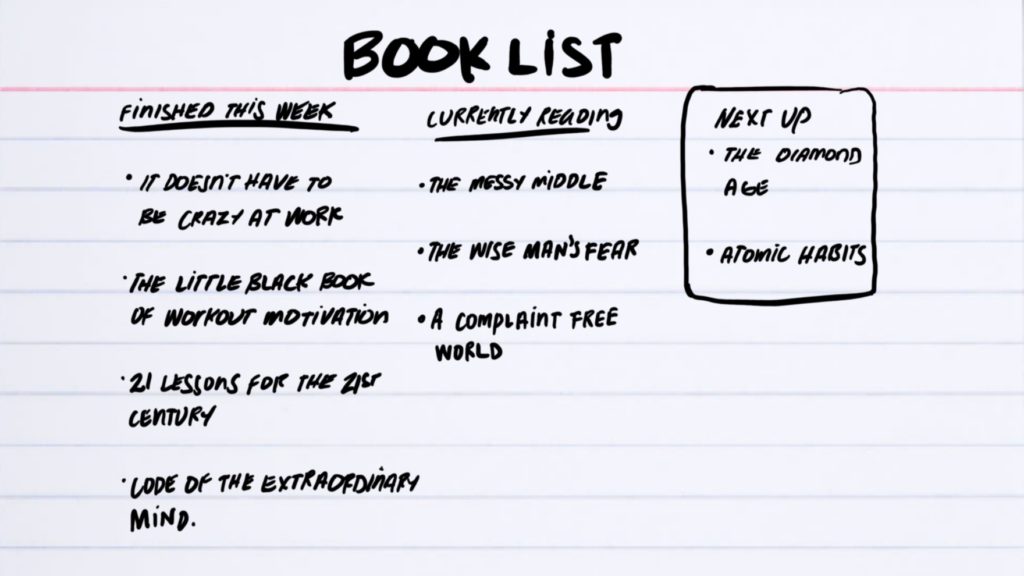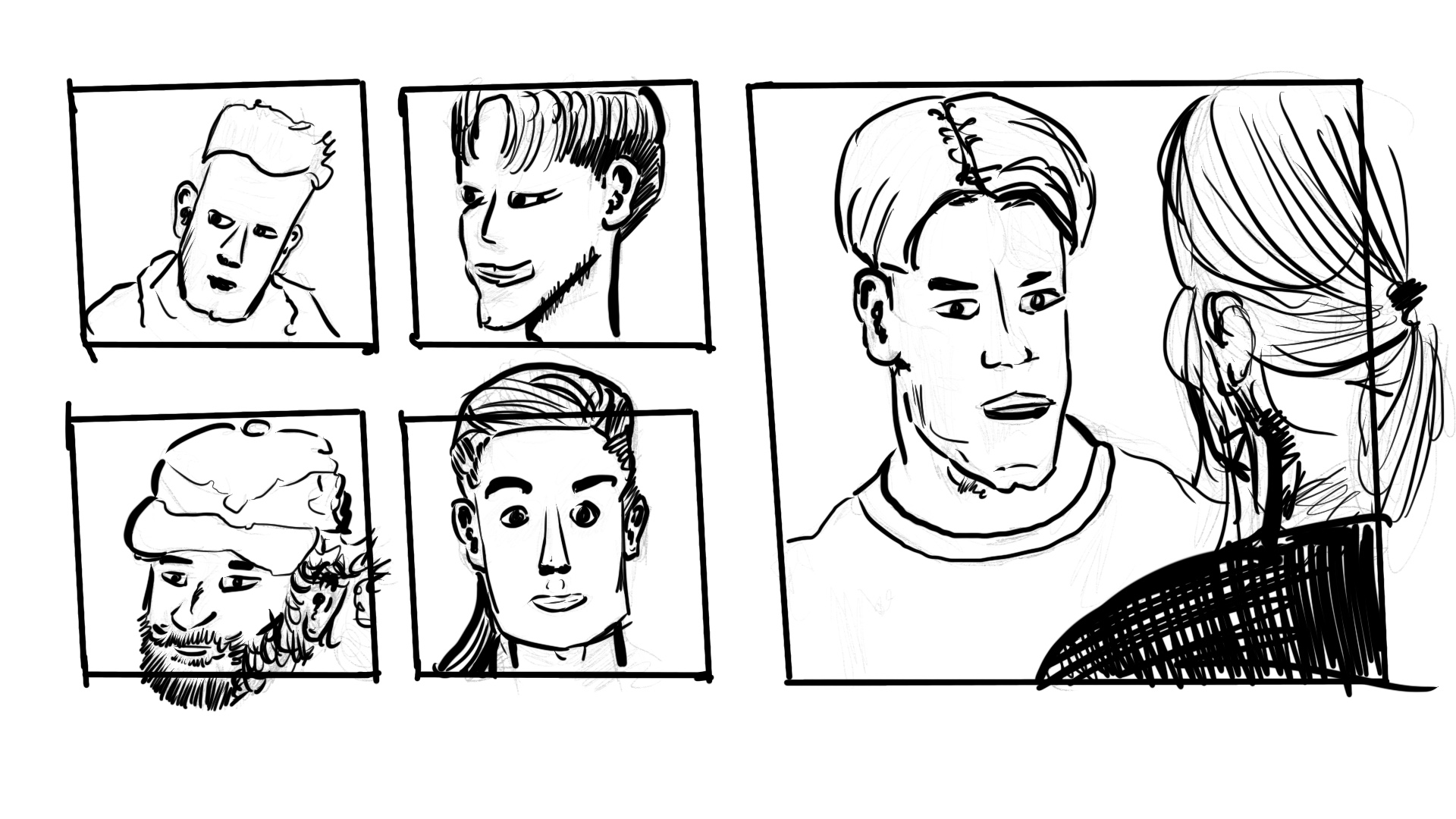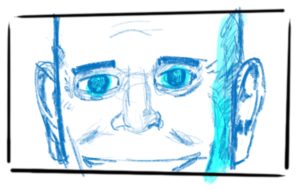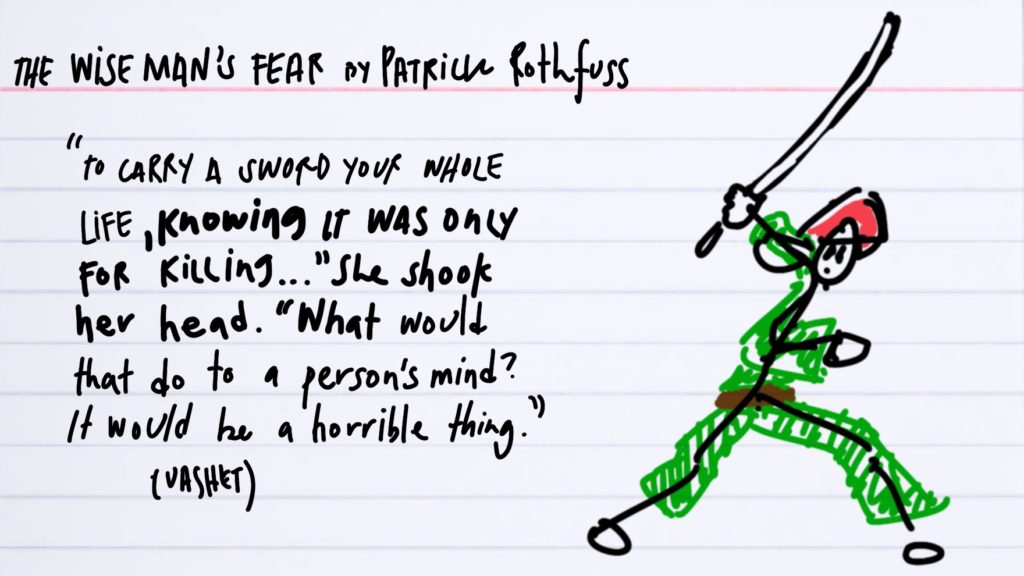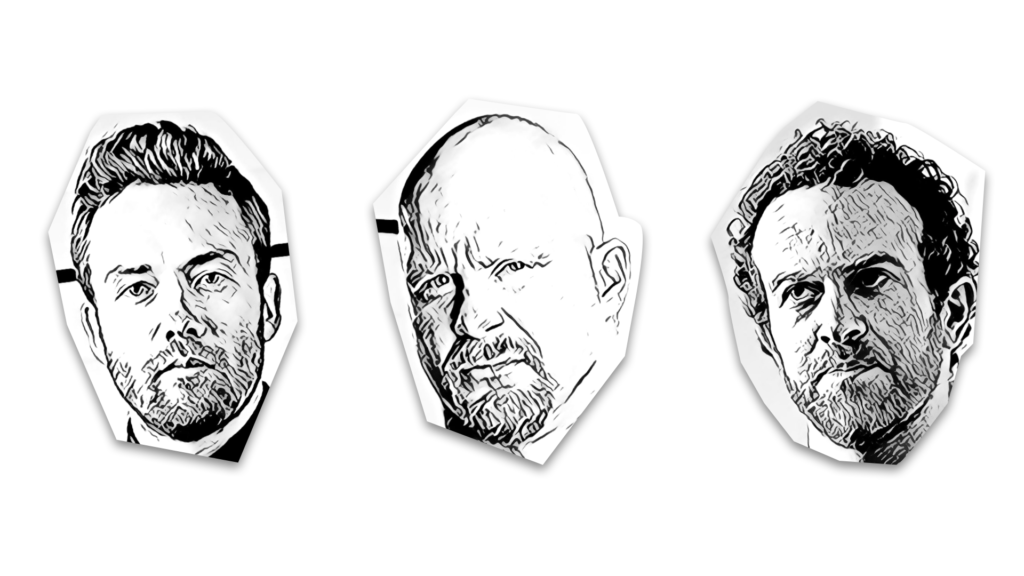Last week’s newsletter ballooned quite a bit so this week I’ll focus just on a reading update: books I’ve finished and books in progress
Books I finished
I’ve been improving with listening to fiction audiobooks. Or it just might be that I’m doing it while walking more along fixed paths. (No automobile traffic and less bike traffic so I don’t need to be as aware of my surroundings.) I’m getting better at noticing when my attention has drifted and rewinding back to where I was. This is clearly not scientific, but I’m rewinding less often and the jumps are smaller.
The Wise Man’s Fear by Patrick Rothfuss
Really glad I picked this back up and finished it. I don’t read a ton of fiction so it’s been a while since I felt immersed in another world. Even outside of books, most movies I see are in one or the other comic universes. Or even catching up on Black Mirror it’s usually earth a couple decades from now. And now I join the others waiting for the third book in the series. I picked this series up after seeing it recommended in one of those “I like Game of Thrones, what should I read?” threads. If you’re in the same boat, check it out because it lives up to that and more.
It’s great how Rothfuss portrays the process of learning empathy for people in other cultures. Particularly realizing that the normal things you do seem just as odd from their perspective. (Pretty cool to see that things in the book like storytelling with knots isn’t fantasy at all.) Fun quips are utilized throughout:
I’d heard he had started a fistfight in one of the seedier local taverns because someone had insisted on saying the word “utilize” instead of “use.”
A Complaint Free World by Will Bowen
Last week I mentioned I complain too much. I still haven’t go the purple wristband but I’ve noticed this week that I really do see when I’m complaining. When I do, I’m able to re-frame it. (Usually using Jocko’s “Good.”) Getting those reps in is valuable. From A Complaint Free World:
It takes time and conscious effort to make it through that first complaint-free day. But once your habits and your thinking start to change, it becomes easier. The key is to keep trying. For me, this challenge was not just about stopping complaining; it’s about turning the complaints into gratitude for the blessings that I have. I see the good instead of only seeing things to complain about.
I started writing daily gratitudes down (with the 5-Minute Journal) and it’s one of the best habits I’ve started and kept in the last year. Writing down good things helps you recognize other good things that happen in the day.
I really like the idea that Bowen presents of flipping the modes of thinking when it comes to luck. Often we credit our hard work and complain when we have bad luck. Instead, if something goes wrong take ownership and see where you can improve. If something goes right, be grateful for your good luck.
Books in progress
The Mental Game of Poker by Jared Tendler
I hung out with a full-time poker player once. Not someone collecting bracelets regularly or anything. He was just making enough to replace his day job that he decided to do it full time. The thing that’ss stuck with me is that he said it’s a grind. It can be draining. I sit at a desk on most days for most of the day. The work can be mentally draining.
I haven’t played poker since the games for fun with friends here and there in college. I haven’t played at all for years. I thought it’d be interesting to learn about how poker players think and what issues they face and how they can improve.
I was guessing a lot of the mental game applies outside of poker with just a little bit of abstraction and have been really enjoying this book it for that. For example, here’s a note about variance:
The problem is that because of variance, monetary results alone are unreliable measures in the short term of how you played. Here are a few better ways to evaluate how you played: Look closely at tough decisions to see how you played them. Estimate how much variance influenced results. Calculate whether you accomplished the qualitative goals you set before the session.
It’s really valuable in so many other ways to just look at how you played a situation instead of focusing on the outcome. You can make the right play and still come out on the losing end of things. Looking forward to reading the rest of this and will probably pick the second book up as well.
The Messy Middle: Finding Your Way Through the Hardest and Most Crucial Part of Any Bold Venture by Scott Belsky
The middle of a venture is like a lengthy road trip without windows. It is psychologically torturous to travel without any sense of where you are along the way—no sense of progress or landmarks—and without a sense for how many miles remain. Your concept of time becomes warped, and impatience stews.
I heard something recently on a podcast and will now butcher it: you can feel like you’re failing for a long time but then succeed because the consistency pays off. You only felt like you were failing the entire time because you were stretching just enough and growing slowly.
On the other hand, you can also feel like you’re succeeding for a long time and still fail. What worked initially eventually turned into consistently treading water until you were passed by others.
So far I’m enjoying how focused The Messy Middle is on the truths of the journey. Starting is fun. Finishing is a great peak. All the rest of the time is going to be in the middle. It’s worth learning how to navigate through the mess.
The Diamond Age: Or, a Young Lady’s Illustrated Primer by Neal Stephenson
Every few minutes I smile because some recent technology I’m enjoying right now is being described in a book from 1995. For example, here’s a description of personalized news:
Now nanotechnology had made nearly anything possible, and so the cultural role in deciding what should be done with it had become far more important than imagining what could be done with it. One of the insights of the Victorian Revival was that it was not necessarily a good thing for everyone to read a completely different newspaper in the morning; so the higher one rose in the society, the more similar one’s Times became to one’s peers’.
We’re able to curate the media we consume pretty specifically these days. For a few seconds anytime I walk into a book store I remember that there are so so many more books than what I see in targeted experiences online. (So you’re telling me there’s more books than just “Subtle Art…”?)
It felt like a good idea to try and read all of Neal Stephenson’s novels and as I get further into The Diamond Age, that feeling is even stronger.
Coming up
Next week I’m really excited to check out James Clear’s Atomic Habits. In the meantime I’ll be reading the books above.
And I’ll leave you with some more photos from a recent walk. That post about these very long walks is coming… eventually.
